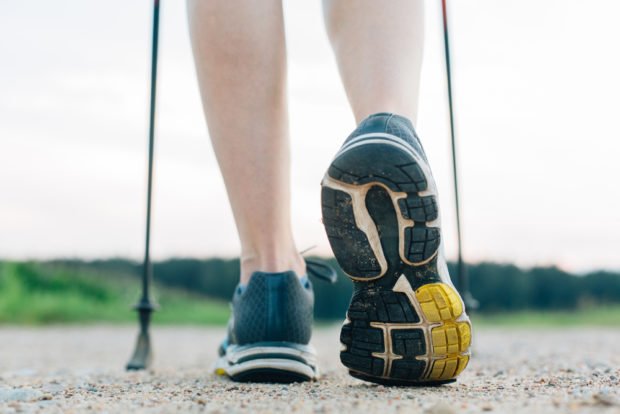How many steps do you really need to achieve true longevity? We’ve all come across articles that have told us that longevity begins at 10,000 steps, but do we really have to reach so high in order to improve our health?
With heart disease being the leading cause of mortality worldwide, how many steps do we need to protect our cardiovascular health? Well, according to a recent study, if you really want to boost your heart health, then you’ll need to simply improve your step count.
Get Your Steps In For Your Heart
One of the leading risk factors for heart disease is age, which sadly is inevitable. As we age, changes in the heart and blood vessels occur, such as more stiffness. This then affects blood flow, causing high blood pressure, and the heart to work harder, which then weakens it. As a result, individuals become more susceptible to heart issues like heart attacks, stroke, and heart failure.
In a recent study, presented at the American Heart Association’s Epidemiology and Prevention Lifestyle and Cardiometabolic Health Scientific Sessions 2023, a group of researchers analyzed the data of 452 adults aged 70 and older. Seniors were fitted with a hip tracking device that counted their daily steps for three or more days and for 10 or more hours.
Seniors were followed for a period of 3.5 years, and the average step count per participant per day was 3,500. During the study period, 7.5 percent of the seniors experienced a cardiovascular event, such as heart disease, heart attack, or stroke.
According to the study’s findings, seniors who took 4,500 steps or more were 77% less likely to experience cardiovascular issues. In fact, every additional 500 steps were associated with a 14% reduced risk of heart disease.
“Steps are an easy way to measure physical activity, and more daily steps were associated with a lower risk of having a cardiovascular disease-related event in older adults,” says lead researcher Erin Dooley, Ph.D., an assistant professor of epidemiology at the University of Alabama at Birmingham School of Public Health.
Why are steps good for your heart?
According to Dr. Dooley, walking is a great way to get some exercise, especially if you’re looking for something light but effective. In addition to it being a low-impact, weight-bearing exercise, which is great for bone health in older adults, Dr. Dooley points out that walking has also been associated with reducing risk factors for heart disease.
How so?

Evgeniy Zhukov/Shutterstock
Well, at elevated levels, blood pressure and blood sugar are both risk factors for cardiovascular disease, but walking helps to manage both. Additionally, walking also helps to manage your weight, and even relieve stress.
Is walking good enough exercise for seniors?
According to Dr. Dooley, one cannot overestimate the benefits of walking on one’s health, particularly those of an older age,
“While we do not want to diminish the importance of higher intensity physical activity, encouraging small increases in the number of daily steps also has significant cardiovascular benefits. If you are an older adult over the age of 70, start with trying to get 500 more steps per day.”
That said, walking isn’t the only way for seniors to stay fit and active. As low-impact as walking is, it still requires a degree of mobility that not everyone at an advanced age will have, especially if they suffer from arthritis or other conditions that cause impaired mobility.
In this case, other ways in which they can keep their bodies moving and active include yoga, swimming, or even gardening.
“It’s not all or nothing with regard to achieving 10,000 steps per day,” said Monica Serra, PhD, to Everyday Health. Dr. Serra is a research investigator in the department of medicine, specializing in geriatrics, gerontology and palliative medicine at UT Health in San Antonio,
“It’s never too late to start and even small changes can lead to big benefits in the prevention of cardiovascular disease.”
MAIN IMAGE CREDIT: Photo by Ketut Subiyanto
Want to know more?
As you get older, you might find that you are not as active as you used to be. However, this doesn’t mean that you have to give up on leading an active lifestyle. In fact, there are a few easy and great ways for seniors to get more active and live their lives to the fullest.





![women [longevity live]](https://longevitylive.com/wp-content/uploads/2020/01/photo-of-women-walking-down-the-street-1116984-100x100.jpg)









